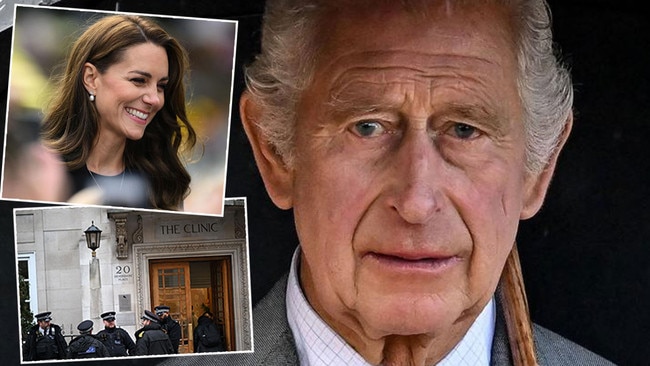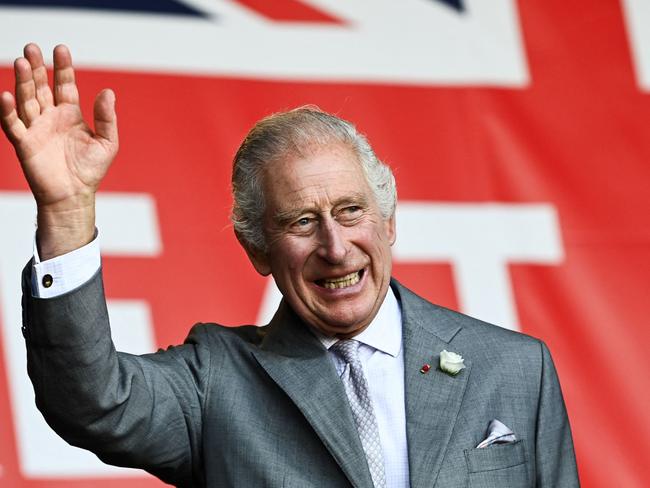How King Charles’ prostate proclamation protects both punters and the Princess of Wales
Not many people put out a press release about their enlarged prostate. King Charles’ proclamation showcased a progressive palace PR strategy, and sparked a spike in Google searches, writes Kerry Parnell.

Opinion
Don't miss out on the headlines from Opinion. Followed categories will be added to My News.
There are not many men who put out a press release when they discover they have an enlarged prostate. But that’s the news from Buckingham Palace this week.
King Charles will shortly undergo a procedure, officials revealed on Wednesday.
“In common with thousands of men each year, The King has sought treatment for an enlarged prostate. His Majesty’s condition is benign and he will attend hospital next week for a corrective procedure,” Buckingham Palace said in a statement.
It came after a statement from Kensington Palace revealing the Princess of Wales is also in hospital. She is recovering in The London Clinic after “planned abdominal surgery.”
Details were less explicit than the King. “She hopes that the public will understand … her wish that her personal medical information remains private,” the statement said.

Both royals have postponed engagements – the King for a “short period of recuperation” and Catherine until Easter.
“He’s fine, thank you very much,” Camilla said at an engagement on Thursday. “Looking forward to getting back to work.”

While I’m sure Charles initially must have had reservations about proclaiming his prostate problems to the world, by doing so, he has both taken some of the attention off his daughter-in-law, but more importantly, raised awareness for prostate health.
Despite being an incredibly common condition, it’s one men don’t discuss in detail, often.
Around 80 per cent of men have an enlarged prostate over the age of 70, according to the Prostate Cancer Foundation of Australia.
A benign enlarged prostate can sometimes obstruct the urethra, causing urinary and bladder issues.
According to the Cancer Council, prostate cancer, meanwhile, is diagnosed in around 17,000 Australian men a year – the most common cancer in men after skin cancer — and the risk also increases with age. Symptoms include difficulty urinating, or pain.
SEARCHES SPIKE
The UK Telegraph reported prostate searches on the NHS website went up 11-fold as the news broke.
The King’s transparency about his condition will undoubtedly lead to more men seeking help, urological surgeon Ian Eardley said, telling PA news, prostate problems traditionally had a “perception of being something you don’t want to talk about.”
Not wanting to talk about it was exactly how Prince Philip felt, back in 2008.
To illustrate just how much times and the royal family has changed, the Duke of Edinburgh was incensed when the London Evening Standard ran a front-page story, titled, ‘Prince Philip Defies Cancer Scare’, alleging he had prostate cancer. Buckingham Palace issued a furious denial and called it a breach of privacy.
“Buckingham Palace has always maintained that members of the royal family have a right to privacy, particularly in relation to their personal health,” the palace said.
It’s understandable – if you live all your life in a gilded goldfish bowl, you’d be forgiven for thinking your royal waterworks at least, were off limits.
So, it’s all the more admirable that Charles, 75, has been so open about his health, particularly with a condition many men fail to even acknowledge in themselves, let alone visit the doctor about.
He and Catherine have demonstrated the old adage that wealth is, of course, nothing without health.
So, if you’re having trouble on the throne, get yourself checked, now.





